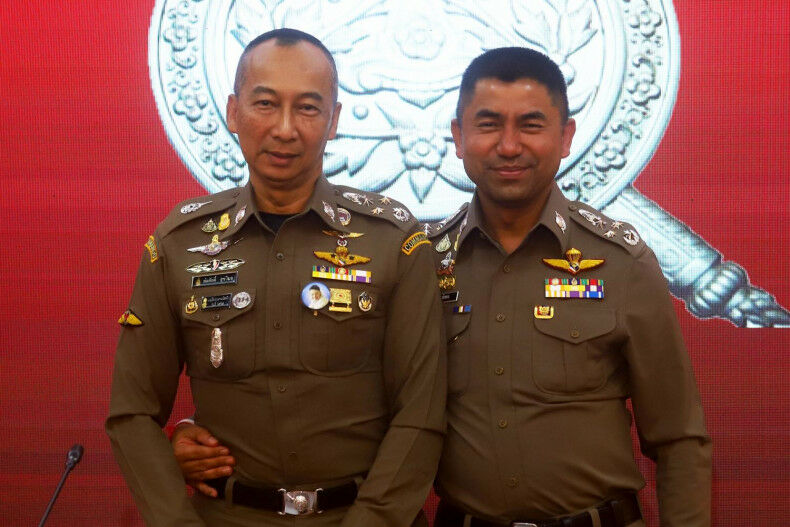Internal strife and political interference hinder Thai police reform

The Royal Thai Police (RTP) are in the throes of internal conflict and political interference, making police reform a distant goal, say observers. A recent high-profile disagreement between National Police Chief, Police General Torsak Sukvimol, and his deputy, Police General Surachate “Big Joke” Hakparn, has fuelled this perception.
Prime Minister Srettha Thavisin, who presides over the Police Commission, allocated the two warring police generals to the Prime Minister’s Office, in an attempt to quell the scandal. Additionally, a committee has been established to probe the discord within the RTP.
The rivalry between Pol. Gen. Torsak and Pol. Gen. Surachate is public knowledge, with both having competed fiercely for the national police chief’s role last September. Accusations surfaced just two days before the Police Commission’s meeting to appoint the police chief last year, suggesting that Big Joke might have links with online gambling website BNK Master, and potential money laundering.
Big Joke denied these allegations, terming them as foul play. While he was occupied clearing his name, Pol. Gen. Torsak, due to retire this September, won approval as RTP chief.
Following Pol. Gen. Torsak’s appointment, the conflict appeared to have subsided. However, the respite was short-lived. Lawyers representing Big Joke recently accused about 30 police officers of accepting bribes from BNK Master, sparking a fresh round of conflict.
Pol. Lt. Col. Krisanaphong Poothakool, vice president at Rangsit University, believes the internal strife within the RTP is undermining public trust. He suggests that the conflict could be connected to the transfer and promotions involving the subordinates of the two feuding police generals.
National Police Act
In his opinion, the National Police Act, which stipulates that a prime minister serves as chairman of the Police Commission, allows for political interference in the police force. He advocates for police reform through decentralisation, suggesting the delegation of authority to regional units.
Former attorney-general Khanit Na Nakhon feels that police reform is stagnant, despite being a longstanding issue. He points out the failure of the police reform plans initiated by the now-defunct National Council for Peace and Order after the 2014 coup, and the current government’s seeming lack of commitment to reform.
Khanit suggests that the susceptibility of the police force to political interference hinders problem-solving. He argues that politicians are more interested in power and meddling with the force than in addressing the root issues.
Pol. Col. Wirut Sirisawasbutr, secretary-general of the Institute for Justice Reform, criticises the transfer of the national police chief and his deputy to inactive posts as a wrong move. He believes that law enforcement, not internal conflict, should be the focus.
Angkhana Neelapaijit, a former member of the National Human Rights Commission, underscores the failure of recent promises of police reform by politicians. She argues that the public does not benefit from the recriminations between conflicting parties and urges officers to dedicate their time to protecting people instead, reported Bangkok Post.
Latest Thailand News
Follow The Thaiger on Google News:


























